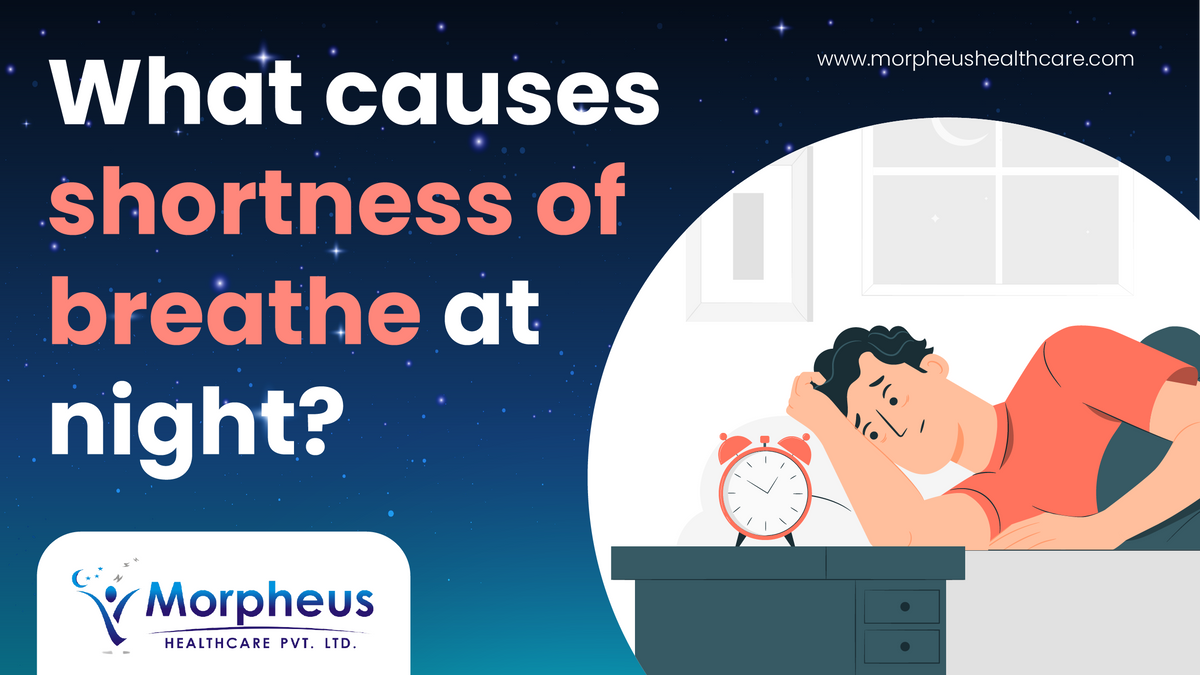What is shortness of breath and what are its causes?
Mar 04, 22

Shortness of breath, also called Dyspnea, is when a person cannot get enough air into their lungs.
The shortness of breath is a complex problem and involves lung and heart organs. These two organs are majorly responsible for the transportation of oxygen to the complete body, and any default on their working might be the underlying cause of shortness of breath.
There can be acute to severe cases of shortness of breath due to these conditions too:
Asthma: Asthma can cause hindrance in breathing and can be an apparent cause of Dyspnea.
Lung infection: Any issue inside the lung will directly cause Dyspnea since its a major respiratory organ.
Allergy: Allergy is also the top contributor to the problem of Dyspnea as microparticles submission in the windpipe would cause blockage to the natural flow of air.
Pneumonia: Pneumonia is a significant health disease that happens because of a virus, bacteria, or fungi or sometimes through hot & cold weather conditions. This disease worsens your lungs rapidly. You may have symptoms like chest pain, dizziness, whizzing, cough, cold and high fever.
Sleep Apnea: Sleep Apnea is a health issue that does not allow you to sleep throughout the night because of the narrowing of airways. You awaken in the nights in intervals to take a deep breath as it affects your sleep. Due to insufficient sleep, you awake in the morning feeling tired. You may have symptoms like headaches and feel irritated.
What is the Treatment of Shortness of Breath?
The doctor will help you cure Dyspnea by identifying the reason for trouble in breathing, and according to the condition, they suggest the line of treatment. Treatment may vary from person to person as it depends on the health condition of a patient.
Some of the familiar lines of treatments often recommended by doctors are mentioned below:-
- Exercise: Exercise helps you be physically fit and strengthen your lungs and heart. It improves your overall health and makes you feel exhausted and winded while performing everyday activities. Cardiovascular rehabilitation treatment might help in the case of heart or lung condition. Take consultation from technical experts for breathing techniques or exercise; don’t try to perform yourself.
- Medication: With inhaled bronchodilators drugs, you feel better in a short period, and it helps you relax your breathing issues in the disease of Asthma. Medication helps give relief instantly in pain or anxiety that leads to solving breathing problems. However, medication should only be taken as prescribed.
- Oxygen Therapy: When your blood oxygen level drops down, it causes shortness of breath. In this situation, Oxygen therapy is the only treatment for your serious issues. Inhaling extra oxygen through a mask or tube in the nostrils helps you to breathe easily.
- Cognitive-Behavioral Therapy: Sometimes, Cognitive-Behavioral Therapy (CBT) is being suggested by counselors in counseling seems to be an effective option for people dealing with breathlessness. Moreover, CBT helps you to find the solution to stressful situations. This therapy helps to address the underlying condition of breathing trouble. A doctor might suggest pulmonary rehabilitation along with CBT.
When to seek immediate medical care?
Shortness of breath is a serious issue that people don’t have to ignore at any cost. Consult with your doctor immediately if you face shortness of breath in everyday activities. Often, troubling in breathing indicates a medical emergency, but people ignore it, and the fact is that you need medical treatment immediately. Also, seek emergency help if you have any of the symptoms mentioned below:
- Chest Pain or feeling heaviness on chest, especially connected with nausea and sweating.
- Swollen ankles or feet
- Blueness in lips or fingers
- High Body Temperature with chills and a cough
- Sound of the whistle (stridor) during breathing in or out
- Irregular or Fast Heartbeat
- Whizzing
How is shortness of breath at night diagnosed?
When you go to a doctor to seek consultation, they will perform a physical exam and ask about your health and your family history details to identify the reason for your breathlessness. Through physical examination, your doctor will be able to diagnose the underlying health condition of your illness. According to research studies, it is determined that 66 percent of cases of shortness of breath are identified based on clinical examination.
Your doctor will also suggest more testing to diagnose the disease. Following are some of the tests that your doctor can recommend to you during the examination.
- pulse oximetry
- chest radiography
- electrocardiography
- spirometry
- stress testing
- sleep study
Verdict
In a hectic or busy schedule, people don’t take their health seriously, making it worse for an individual. It is suggested that consult with a doctor and conduct relevant diagnostic tests if you experience shortness of breath.
Shortness of breath can happen for many reasons, and curing it depends on the underlying conditions. If you have any symptoms of breathlessness or difficulty breathing, make an appointment with a doctor. They help and suggest you the best treatment after seeing your health condition.


